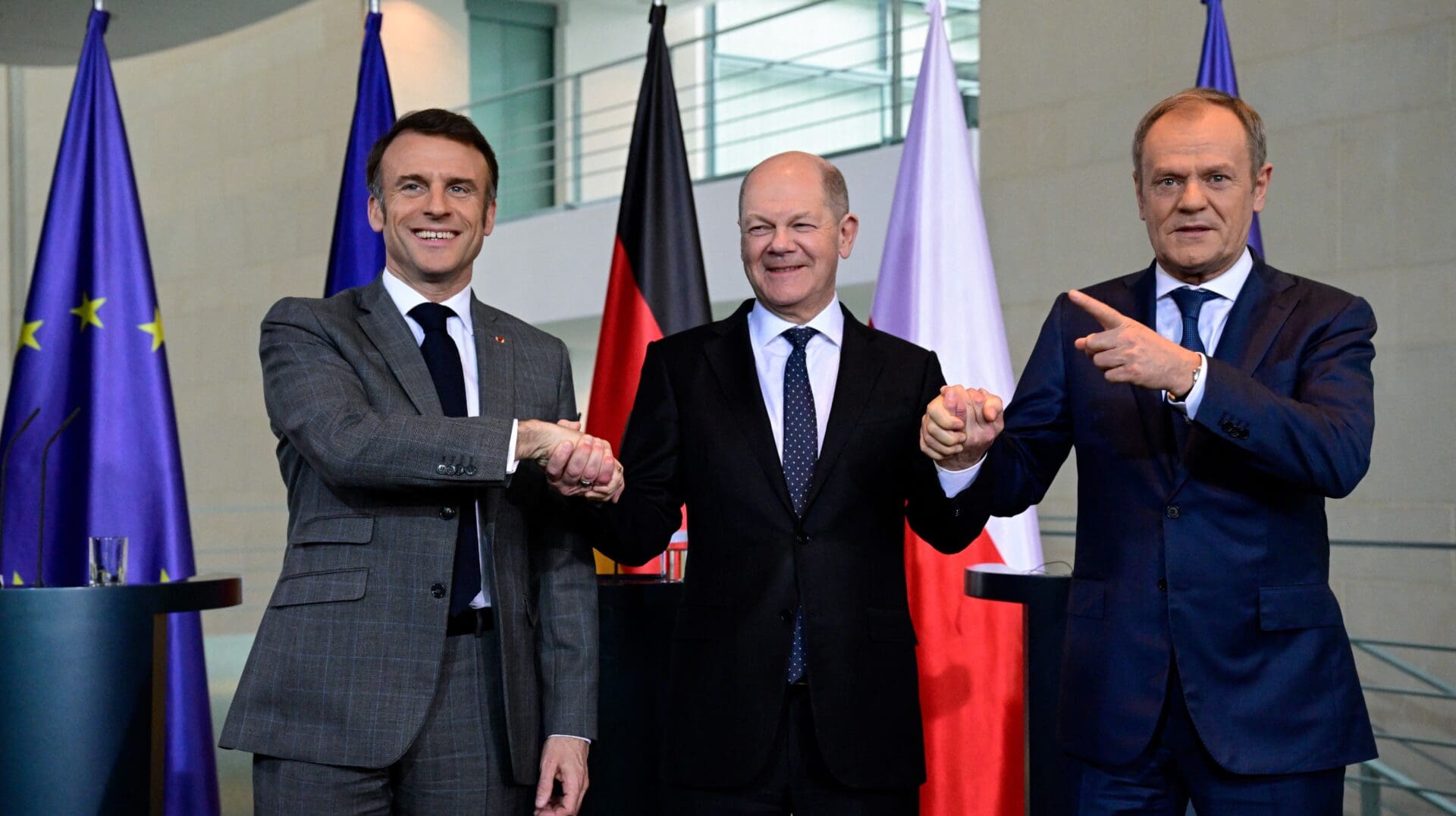The following is a translation of an article written by Neokohn.hu chief staff writer, acclaimed Hungarian Israeli security and military policy expert Robert C. Castel, originally published on Neokohn.hu.
The French president’s coquetry with the instrument of strategic uncertainty looks like the proverbial ‘free dinner’ at first glance. Commentary by Robert C. Castel.
A chance remark here, a misstatement there, and one can reap serious benefits right away without any special investment. At home against Le Pen, in the European arena against Schultz, and in NATO against the Yankees.
Maybe even the Russians will get scared in the end. Of course, free dinners are not on the cards this time either, but the tactic of strategic uncertainty has its drawbacks and dangers.
Misinterpretation
The lack of clarity can lead to different interpretations by different stakeholders, which can cause confusion and misunderstanding of objectives. If it goes particularly wrong, it can trigger a war where we do not want one. And if it happens between nuclear powers, it could eventually ruin our whole week. Dean Achenson’s 1950 speech that left South Korea ‘outside the walls’ gave the US a great deal of flexibility on the Korean Peninsula. However, the other side interpreted this to mean that the US government, in line with the 1947 advice of the Joint Chiefs of Staff, did not consider it a vital national security interest to defend South Korea and would not intervene in defence of its ally.
The rest of the story is already well known.
Lack of Clarity
Lack of clarity can obscure important information, making it difficult for stakeholders to make informed decisions. If we are dealing with a leader who has a high need for closure and has difficulty with vague, ambiguous situations, there is a very good chance that they will cut the Gordian knot we have tied with a sword. In 1967, Gamal Abdel Nasser did not want war with Israel; he merely wanted to win diplomatic points with a show of force.
However,
strategic uncertainty, coupled with a military game of chicken, led to a regional war whose consequences are still with us today.
Loss of Trust
In addition, a lack of clarity can weaken trust between parties, as they may perceive communication as evasive or generalizing. This problem exists between adversaries and allies alike. When Israel approached the United States in 2007 about taking action against Syria’s nuclear weapons programme, the Bush administration gave only a reluctant, ambiguous response. In the absence of a clear guarantee that the US would treat this nuclear proliferation threat as a high priority, this Gordian knot fell victim to the sword as well, bringing the Middle East to the brink of another regional war.
Reduced Liability
The lack of concrete expectations makes it very difficult to hold individuals, organizations, or states accountable for their actions. The mission statement of the UN contingent in Lebanon, UNIFIL, is a perfect example of this.
When an armed body is only empowered to ‘support’ and ‘create the right environment’, we might as well send them on an infinite leave of absence.
Missed Opportunities
A lack of clarity can also hinder the potential for joint action, as uncertainty can cause stakeholders to hesitate indefinitely about a particular strategic decision. A very good instance is the Soviets’ attempts to gain tacit US consent to a pre-emptive strike against a rapidly expanding Chinese nuclear weapons programme. Because of the initial hesitation and uncertainty in US communications, the Soviets did not dare to act, thus the nuclear club grew by one.
Damage to Reputation
Lastly, a lack of clarity can damage the reputation of a person, an organization, or an authority by giving the impression that it is indecisive or untrustworthy by stakeholders. A very good example of this is the phrase ‘Perfidious Albion’, a classic expression of continental resentment of 18th-century British strategy and communication.
Strategic uncertainty is not a universal elixir, but merely one of the tools in a politician’s and a strategist’s toolbox.
It is important to know when to use it, but it is perhaps even more important to know when not to.
For strategic uncertainty to be an effective tool, serious kinetic action must sometimes be added to the bluffing and the show of force.
Anyone who does not believe it should ask President Trump or the late Iranian General Qasem Soleimani.
Related articles:
Click here to read the original article.








